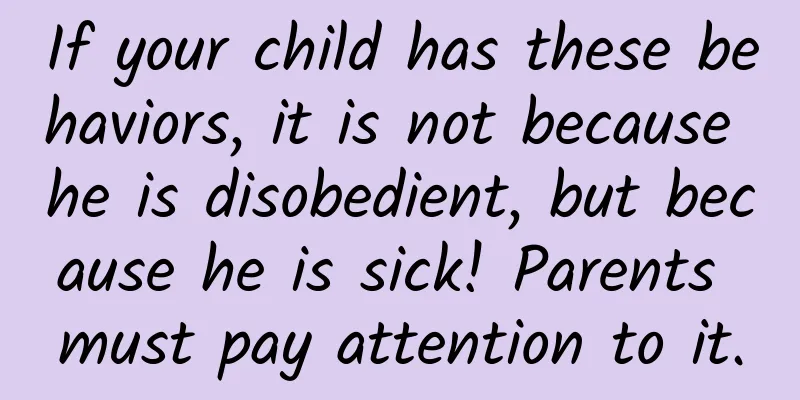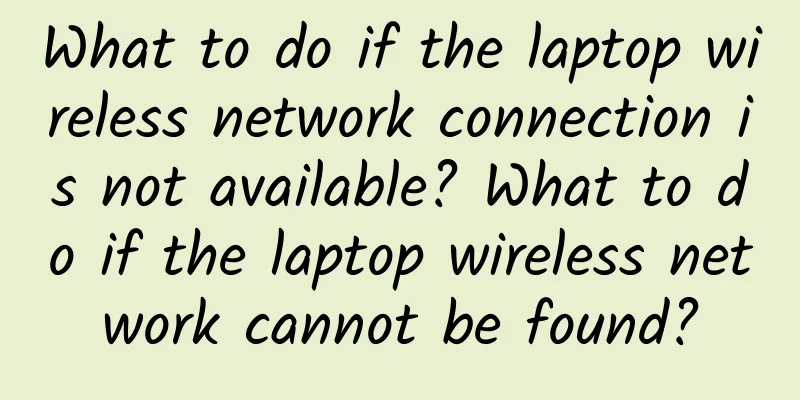If your child has these behaviors, it is not because he is disobedient, but because he is sick! Parents must pay attention to it.

|
Does your child have the following behaviors? Frequent small movements, difficulty concentrating, easily distracted, often daydreaming in class, procrastinating on homework, forgetting things, and sometimes not getting along well with peers. Grades are declining, and failing or being at the bottom of the class is the norm. As a result, he was labeled as "naughty", "lazy", "disobedient", "rebellious" and "poor student". His parents were often called by the teachers and he was criticized and punished for this. Experts from the Xiangdong Hospital affiliated to Hunan Normal University remind that this may not be intentional, but a physiological problem, with attention deficit hyperactivity disorder (ADHD) and lack of self-control. Children will also find themselves different, so they feel inferior and depressed, and then develop various psychological problems. 1. What is attention deficit hyperactivity disorder? Attention deficit hyperactivity disorder (ADHD), also known as ADHD, is a common chronic neurodevelopmental disorder that begins in childhood and can continue into adulthood. It can be comorbid with multiple neuropsychiatric disorders. Early identification, early diagnosis, and early standardized treatment play an important role in the prognosis of ADHD. The etiology of ADHD is complex, and its etiology and pathogenesis are not yet fully understood. 2. Symptoms of attention deficit hyperactivity disorder Common symptoms of inattention 1. I am lose-handed and forgetful in life. 2. Procrastination and lack of planning. 3. Being careless when doing homework, prone to making low-level mistakes. 4. He cannot concentrate in class and has no idea what the teacher is asking. 5. Often distracted by external stimuli. 6. Frequently avoid, dislike, or don’t want to do tasks that require sustained attention. Clinical manifestations of hyperactivity and impulsivity 1. Running back and forth in inappropriate situations. 2. In kindergarten, he often moved his hands and feet and seemed very lively. The teacher reported that he did not follow discipline, had difficulty sitting still, and loved to make trouble. 3. After attending school, teachers reported that the child had poor discipline in class, made many small movements in class, was unable to concentrate on his homework, talked a lot and interrupted others, and could not sit still. 4. Ask questions frequently, answer before others have finished speaking, and interrupt others’ conversations. 5. Not following the rules of the game, lacking patience, and often having trouble waiting in order. 6. Often overreact to unpleasant stimuli, have difficulty controlling themselves, and even hurt others. 3. If attention deficit hyperactivity disorder is not treated, will it get better when one grows up? The global incidence of attention deficit hyperactivity disorder in children is about 7.2%, 60% to 80% may persist into adolescence, and 50.9% may persist into adulthood. 4. How to treat attention deficit hyperactivity disorder? ADHD is a chronic disease with a biological basis. Its treatment should follow the medical care model and family treatment principles for chronic diseases. Non-drug treatment is the first choice for children with ADHD aged 4 to 6 years old. For children aged 6 years and above, a comprehensive treatment combining drug treatment and non-drug treatment is used to comprehensively relieve the core symptoms of children with ADHD, improve their functional impairment, and enhance their living, learning and social abilities. 1. Non-drug treatment Including behavioral intervention (CBT, parent training), psychotherapy, exercise therapy, nutritional intervention and functional training (attention, emotion management, social skills), biofeedback therapy, etc. Children with mild ADHD can receive initial assessment and non-drug intervention (such as behavioral therapy, dietary and nutritional therapy, etc.) by primary care child health physicians or general practitioners who have received ADHD diagnosis and treatment training; children with moderate to severe ADHD should be diagnosed and treated by specialists. Psychological behavioral therapy includes organizational skills training, psychosocial therapy, multimodal psychological intervention and cognitive behavioral therapy, etc. It uses a series of intervention methods to change the lives of children and achieve the goal of improving behavior. 2. Medication At present, the most common drugs for treating attention deficit hyperactivity disorder in my country are as follows: 1. Methylphenidate sustained-release (Zhenzhuanda): long-acting for 8-12 hours, improves attention and increases self-control. 2. Atomoxetine hydrochloride (Zestad): It takes 2-6 weeks to gradually take effect and improve ADHD and emotional symptoms. 3. Others: Children's Intelligence Syrup, Jingling Oral Liquid, Duodongning Capsules, etc. Source: Publicity Department of Xiangdong Hospital Affiliated to Hunan Normal University Follow @湖南医聊 to get more health science information! (Edited by ZS) |
<<: A vaccine's autobiography: I am very small, but I am related to you
>>: Should I choose wire braces or invisible braces? Here is a complete guide to orthodontics!
Recommend
Why are nipples itchy?
It should be noted that some female friends have ...
What can you cook with celery? What does poisonous wild celery look like?
Celery has a long history of cultivation and is o...
What does pink menstrual period color mean?
Normally, women's menstruation is dark red. I...
Can I test for pregnancy if my period is 10 days late?
Delayed menstruation is good news for women who a...
Menstrual symptoms are obvious but disappear
Women have their periods every month, and most pe...
How to treat grade 3 breast hyperplasia?
The mammary gland is a symbol of femininity and a...
What should skinny girls wear?
There are many obese girls in life. Some of them ...
How much does Down syndrome screening cost?
Children with Down syndrome are born with a varie...
I’ve been feeling hungry lately. Am I pregnant?
For women who have never given birth, many of the...
Foods that are common but can give you diarrhea if you are not careful
In our daily life, when we find ourselves having ...
What is the nutritional value of winter bamboo shoots? How to distinguish spring bamboo shoots from winter bamboo shoots
Winter bamboo shoots are known as "golden an...
Can diabetes cause blindness? It's true!
"The elderly in my family has had diabetes f...
Female vulva itching with small bumps
Key reminder: Female friends are easily confused ...
Can I eat instant noodles when I'm pregnant?
Instant noodles are a common type of instant nood...
What are the benefits of drinking corn porridge during pregnancy
Pregnancy is a very special period, during which ...









